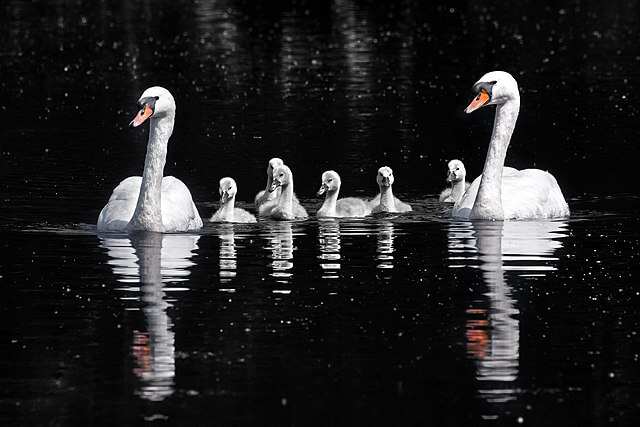
The time-honoured tradition of the royal census known as “swan upping” has yielded a concerning revelation—a 40% decline in the count of cygnets along the River Thames compared to the previous year.
This significant drop has been attributed to the prevalence of avian flu and an escalating issue of violence targeting swans, encompassing acts such as shootings, catapult assaults, and fatal dog attacks.
Merely 94 cygnets were identified during the comprehensive five-day survey of the Thames. The King’s swan marker, David Barber, expressed his disappointment at the outcome, noting that the impact of avian flu was to be anticipated but still disheartening. The recent spectacle of swan counting, while vibrant, now casts a more somber light over the situation.
David Barber, who supervised the census spanning from London to Abingdon in Oxfordshire, described the devastation caused by avian flu as distressing and dreadful. The number of cygnets has plummeted from 155 in the previous year, marking the lowest count in seven years. However, the cygnets that were found exhibited robust health and well-being, according to Mr. Barber.
In addition to the affliction of avian flu, the decrease in cygnet numbers can also be attributed to the destruction of nests caused by high floodwaters. Moreover, there are growing concerns about acts of vandalism targeting these majestic birds, which include shooting them with air rifles and other firearms, obliterating nests and eggs, and subjecting swans to harm by letting dogs roam freely.
The recent “swan upping” event holds historical significance as the inaugural one conducted under the auspices of King Charles. This annual practice, tracing its origins back to the 12th Century, involves teams donned in scarlet attire rowing along the river to meticulously count, measure, and weigh young swans they encounter.
Initially established as a means for the Crown to assert its ownership of swans, “swan upping” has evolved into a cornerstone of wildlife conservation efforts. Once considered a delicacy for medieval feasts, swans now enjoy protected status as an essential species.
——————————————————————————
At Natural World Fund, we are passionate about stopping the decline in our wildlife.
The decline in our wildlife is shocking and frightening. Without much more support, many of the animals we know and love will continue in their decline towards extinction.
When you help to restore a patch of degraded land through rewilding to forests, meadows, or wetlands, you have a massive impact on the biodiversity at a local level. You give animals a home and food that they otherwise would not have had, and it has a positive snowball effect on the food chain.
We are convinced that this is much better for the UK than growing lots of fast-growing coniferous trees, solely to remove carbon, that don’t actually help our animals to thrive.
This is why we stand for restoring nature in the UK through responsible rewilding. For us, it is the right thing to do. Let’s do what’s right for nature!
Donate today at https://naturalworldfund.com/ and join in the solution!

